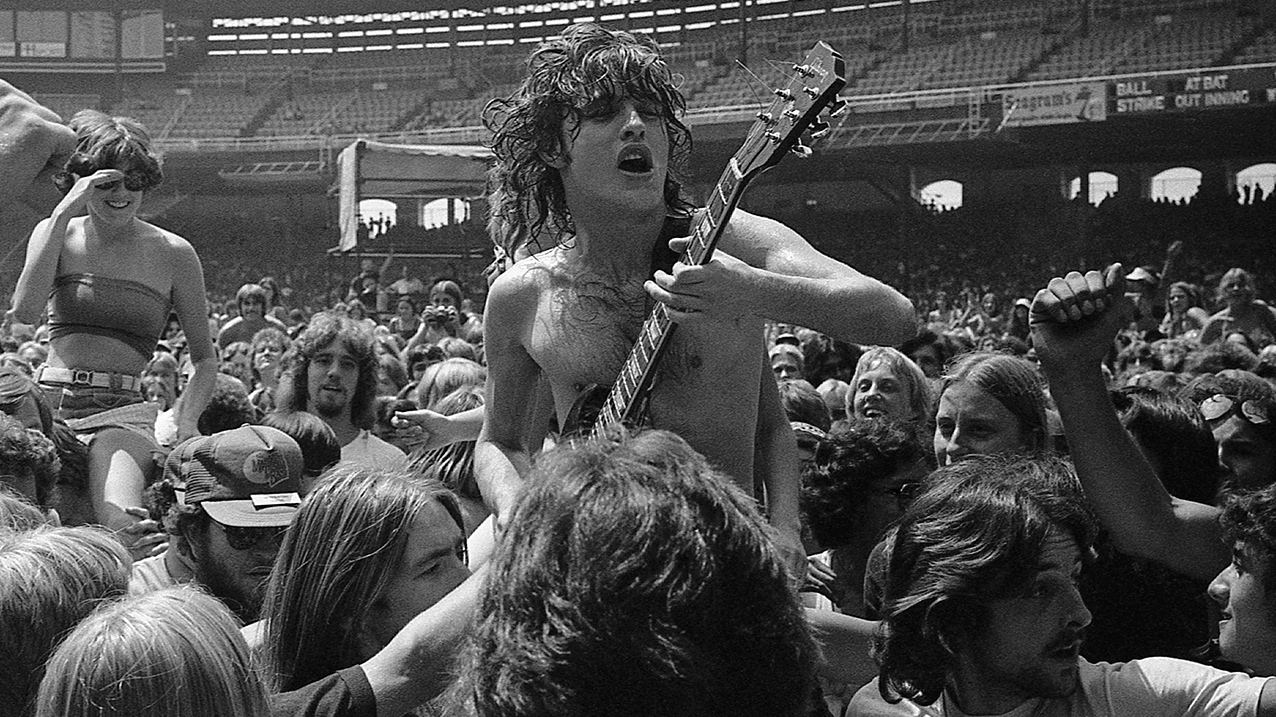Presenting our no.1 Greatest Album Of The 70s, the connoisseur’s choice!
Sandwiched between the twin peaks of Let There Be Rock and Highway To Hell, AC/DC’s fourth international release didn’t immediately stake a claim as the finest album in the band’s catalogue. That Powerage is the only AC/DC album title not to feature in a chorus speaks of one of its key virtues – subtlety. Granted, there’s little that’s subtle about the throttling riffs on Riff Raff or the crunching Kicked In The Teeth, but elsewhere – on the beautifully lachrymose Down Payment Blues, the playful What’s Next To The Moon, the plaintive, in-the-pocket Gone Shootin’ – ’DC display a discipline, control and restrained power that only the most mature and confident of players can attain. Which helps explain why this is Keith Richards’s favourite AC/DC album.
Emphatically, though, this is Bon Scott’s album. Much of the beauty of Powerage comes from Scott’s brilliantly sketched portraits of disappointed, desperate men pushed beyond breaking point by lost love and empty pockets. As cocksure as he could be – and no other singer before or since swaggered with such Jack The Lad insouciance – Scott always had an affinity for the broken and bruised; that guy with holes in his shoes, holes in his teeth and patches on the patches on his old blue jeans, and Powerage is a celebration of fortitude in the face of soul-crushing setbacks. Crucially, though, there is always hope here, always a glimpse of blue skies for those knocked in the gutter, as evinced by Sin City at the heart of the album, a glorious ‘fuck you’ to the fates, a defiant last hurrah in the face of cruelly stacked odds. After Powerage, AC/DC would get louder, slicker and bigger, but they would never again display this much heart, soul and humanity.
What they said at the time: “Powerage shows AC/DC to have evolved… to full-blown competence.” Circus

